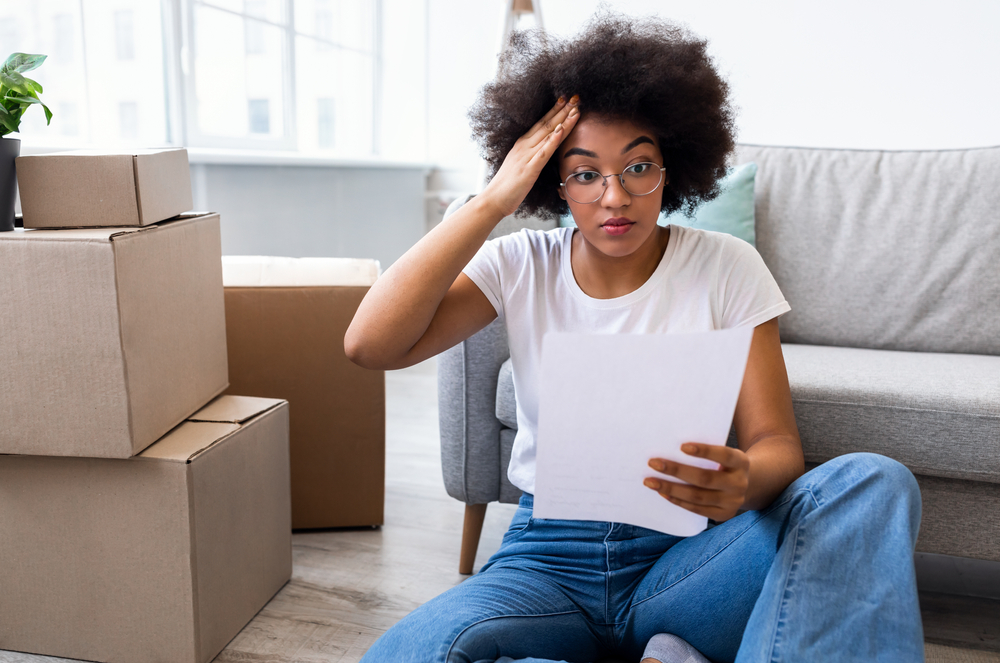Black women bear a disproportionate amount of eviction rates, according to research by the Center for American Progress.
According to the report, one in five renters who are at risk of being evicted are Black women. Overall, in 17 states, Black women who were renting faced eviction at rates double that of white renters. In places such as Milwaukee, although they make up less than 10% of the overall population, Black women are 30% of those evicted from their homes, facing the greatest risk for eviction out of every demographic.
“Long-term policy solutions must address the systemic barriers to housing, including income inequality and shortages of affordable housing, in order to provide all people equal access to housing security,” wrote the researchers in their report. “There is an immediate need for states to respond to the eviction crisis by enacting policies that account for demographic disparities and decrease eviction filings, increase tenant protections and rights during the process, and keep families and individuals out of cycles of poverty and hardship.”
Overall, Black women are among those that are most affected by housing insecurity when it comes to both renting and homeownership. According to a report by the National Women’s Law Center, they are still recovering from the recession in 2007 as they were victims of systemic racism in housing loans.
Per the NWLC and Essence, Black women were given high-cost, high-interest mortgages at higher rates than anyone else and were neglected by the government in their approach to the 2008 financial crisis. Consequently, they were forced into more debt and deeper into housing insecurity which exacerbated the impact of the COVID-19 pandemic.
Black women are also at risk for higher evictions and housing insecurity overall because of economic insecurity that persists with the wage gap for Black women. Per CAP, 68% of Black mothers are the only breadwinners and 82% of Black women are the primary or co-providers for the family with the household relying on them for housing payments.

Currently, the inability to afford to pay rent is the primary reason for eviction.
The increasing cost of housing burdens Black women as they continue to be paid $0.67 cents for every dollar a white man makes. According to the NWLC, this wage gap means that, on average, Black women are paid $1,891 less per month, $22,692 less per year and $907,680 less over the span of the average 40-year career. To address the disproportionate amount of Black women who face eviction and overall housing insecurity, the ACLU recommends that lawmakers create programs to prevent eviction and amend legislation by including “source-of-income nondiscrimination laws.” The ACLU also recommends that everyone facing eviction should have a right to counsel.
For Black women facing housing insecurity or evictions, there are a variety of resources they can turn to.
Nonprofit group Louisiana Fair Housing Action Center offers Black women and other BIPOC renters a way to address discriminatory practices by landlords through providing a place for them to file a discrimination complaint. The staff attorneys then will help those discriminated against by conducting an investigation into violations against the Fair Housing Act.
Those faced with eviction can also get easy access to an eviction defense attorney and housing counselor for information.
States such as New York also provide legal assistance from the Department of Social Services Office of Civil Justice for those facing evictions, while the U.S. The Department of Housing and Urban Development provides monetary funds to nonprofits helping those at risk. Under the Eviction Protection Grant Program, 21 grantees have been awarded $20 million for low-income renters facing evictions to receive legal assistance at no cost.
At the locations of the grantees, 11 statewide and 12 local eviction protection programs are available to those at risk. Approximately half of the 13,000 households currently aided by the grant program are Black Americans.








